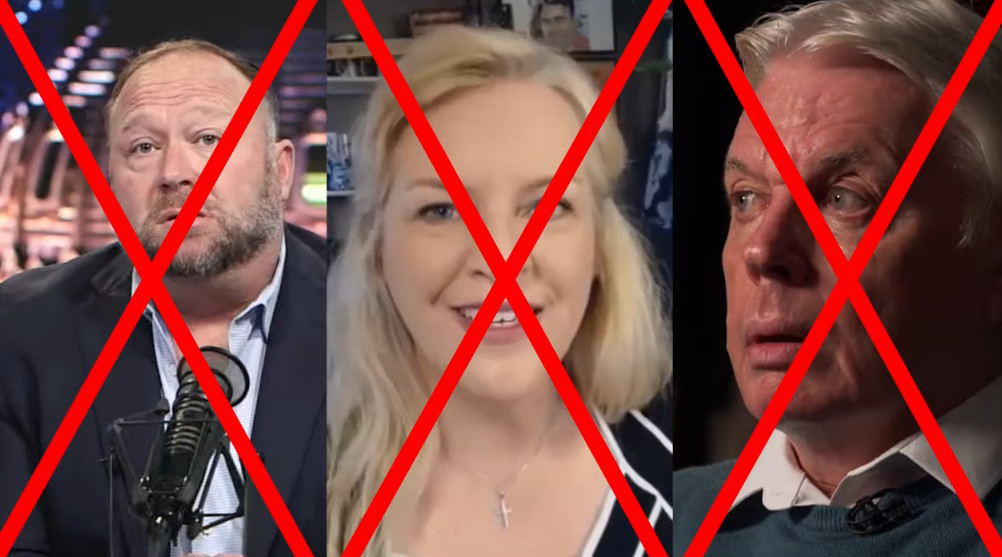
Back in April, Xi Jinping gave a (just released) speech about his "dual circulation" plan for China's economy:
* stimulating consumer spending and reducing China's dependence on trade, and
* increasing other countries' dependence on Chinese tech."
cset.georgetown.edu/wp-content/upl…
1/
* stimulating consumer spending and reducing China's dependence on trade, and
* increasing other countries' dependence on Chinese tech."
cset.georgetown.edu/wp-content/upl…
1/

The strategy speaks volumes about the issues of most urgency in our current political economy, grounded as it is in competing bids to strengthen one's own autonomy while reducing other economic actors' capacity for self-determination.
2/
2/
Think of California's #Prop22, which stripped employees of the right to organize, to earn minimum wage, or to receive benefits - and gave gig companies the assurance that their power to exploit and abuse workers will never face organized resistance.
pluralistic.net/2020/11/07/oba…
3/
pluralistic.net/2020/11/07/oba…
3/
Or how HP forces you to pay stonking monthly ink-fees, denying you access to competitors' ink.
You lose the autonomy that comes from shopping around, they gain the self-determination of being able to bank on your monthly payment.
eff.org/deeplinks/2020…
4/
You lose the autonomy that comes from shopping around, they gain the self-determination of being able to bank on your monthly payment.
eff.org/deeplinks/2020…
4/
"Lock-in" and "interoperability" are the twin poles of self-determination and autonomy. You would like Google Photos to continue to have unlimited storage (locking Google in); Google would like to prevent you from switching to a competitor when they jack up prices.
5/
5/
Hence Xi's pronouncements: "For industrial & national security, we must focus on building production chains and supply chains that are independent, secure and reliable, and strive for important products to all have at least one alternative source."
6/
https://twitter.com/gwbstr/status/1326640387562196992
6/
The idea that important state procurements should allow for alternate sourcing is old and important. Back in the US Civil War, the Union army sourced clones of the Springfield rifle from 20+ alternate vendors.
essentialcivilwarcurriculum.com/small-arms-and…
7/
essentialcivilwarcurriculum.com/small-arms-and…
7/
Today, that lesson is largely lost. We sometimes entertain notions of mandated interoperability (as with the ACCESS Act), but lose sight of the power of procurement to shape markets.
congress.gov/bill/116th-con…
8/
congress.gov/bill/116th-con…
8/
Think of the imprudence when school districts source thousands of Ipads without extracting a guarantee that they can sideload apps. That failure exposes the whole system to risk in the event that Apple capriciously decides to remove an app that these classrooms depend on.
9/
9/
By contrast, remember how the Obama admin's procurement requirements shifted Google in 2009: after Obama took office, he abandoned his weekly Youtube "fireside chats," citing the privacy problems from embedding Youtube videos on whitehouse.gov pages.
10/
10/
Youtube - not wanting to lose its status as a supplier to the US presidency - rolled out a no-surveillance version of the service, youtube-nocookie.com, which every person in the world could make use of for their videos, too.
vator.tv/news/2009-03-0…
11/
vator.tv/news/2009-03-0…
11/
In the years since, the US presidency has de-emphasized protecting people from commercial surveillance and Google appears to have quietly sunset its surveillance-free version of Youtube.
12/
12/
Xi's insistence on second-sourcing for key industries is going to meet with stiff headwinds from industrial execs who want to maintain their monopolies, but it's absolutely the right thing to do - a grand American tradition, forgotten at home, renewed in China.
13/
13/
But let's not forget the other half of Xi's "dual circulation" plan:
"We must tighten int'l production chains' dependence on China, forming powerful countermeasures and deterrent capabilities based on artificially cutting off supply to foreigners."
14/
"We must tighten int'l production chains' dependence on China, forming powerful countermeasures and deterrent capabilities based on artificially cutting off supply to foreigners."
https://twitter.com/gwbstr/status/1326641115680841729
14/
This is the other end of the self-determination see-saw: Xi wants to strengthen China's resiliency by making other countries fragile.
Left to their own devices, the powerful always seek to move risk to other peoples' side of the ledger.
15/
Left to their own devices, the powerful always seek to move risk to other peoples' side of the ledger.
15/
By permitting the growth of lock-in fuelled monopolies at home, the US has allowed its large corporations to do to the American people what Xi now proposes to do on a global scale.
16/
16/
US government apparatchiks will doubtless be horrified at Xi's plan to strengthen China by making American's vulnerable to lock-in - but lock-in is lock-in. Xi Jinping doesn't care about your thriving or self-determination.
But neither do Google, Apple, Facebook or HP.
17/
But neither do Google, Apple, Facebook or HP.
17/
Governments can intervene directly in lock-in by mandating interoperability and carving out exceptions to copyright, patent, trade secrecy and cybersecurity laws to permit interoperability - but these are slow-moving wrangles that must get through Congress.
18/
18/
But there's a faster and almost as powerful lever that local, state and national governments can yank on to make change NOW: procurement rules. The same procurement rules that helped the Union army beat the Confederacy.
19/
19/
Xi wants these interop rules for China, but wants the rest of the world to have the opposite - lockin. American officials can give us the freedom that Xi would deny us simply by spending our money prudently and refusing to buy products without a promise of interoperability.
eof/
eof/
• • •
Missing some Tweet in this thread? You can try to
force a refresh











